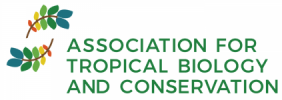Plant-pollinator networks: inferring the presence of interactions, and the influence of spatial scale
Deadline is 20th January 2017
Project Description
Ecological networks (e.g. food webs) are a great approach for studying the resilience and robustness of ecosystems. Many ecosystem functions and services directly result from the interactions between species (e.g. plant-pollinator interactions – these are the ‘building blocks’ of ecological networks). However, information on the species interactions is often lacking because field sampling is a labour-intensive process. This project will develop approaches to statistically infer interactions, enabling networks to be ‘reconstructed’ even when they have not been directly observed. The student will use, and develop, a statistical approach called Bayesian network inference to infer interactions from existing abundance and occupancy data, with the aim of applying these to predict the structure of plant-pollinator networks across the country.
As part of the project, there will also be field sampling of plant-pollinator networks to determine how the spatial scale of sampling influences the roles of individual species and the properties of the whole network. Field work will take place in the UK during periods of suitable summer weather.
This project will be based at the Centre for Ecology & Hydrology’s site in Wallingford, Oxfordshire. This is a large interdisciplinary research institute and one of the largest concentrations The student will be part of the Biological Records Centre at CEH – providing a dynamic mix of expertise in data analysis and visualisation, and high performance computing, as well as expertise in citizen science. Registered at Newcastle University, the student will benefit from being part of the Network Ecology Group. The student will benefit from hands-on training from the supervisory team in network analysis, field sampling of pollinators and inference methods. They will also be given training in Bayesian network inference at St Andrews University.
It is essential that the student has good quantitative skills and the desire to develop new statistical skills, and also has the desire to undertake field sampling of pollinators in the UK countryside and gain skills in identifying British bees and hoverflies. The applicant will need a current driving license.
For further information please see: http://www.iapetus.ac.uk/wp-content/uploads/2016/12/IAP-16-73-Pocock-CEH.pdf
Applicants for a studentship must have obtained, or be about to obtain, a 2.1 degree or higher. If you have a 2.2 degree, but have also obtained a masters qualification, you are also eligible. Substantial relevant post-graduate experience may also be sufficient, please contact the supervisors for more information.
To apply please send email Dr Pocock (michael.pocock@ceh.ac.uk; (cc darren.evans@ncl.ac.uk and vas1@st-andrews.ac.uk).
In your email include: 1) a two-page covering letter detailing your reasons for applying and why you have selected this project, 2) your CV with contact information for two references, 3) full transcripts of previous qualifications obtained to date.
Funding Notes
This project is one of a number of proposed topics that are in competition for funding from the NERC IAPETUS Doctoral Training Partnership View Website.
Full studentships (fees and stipend) are only available to UK nationals and other EU nationals that have resided in the UK for three years prior to commencing the studentship. If you are a citizen of an EU member state you will eligible for a fees-only award, and must be able to show at interview that you can support yourself for the duration of the studentship at the RCUK level.



